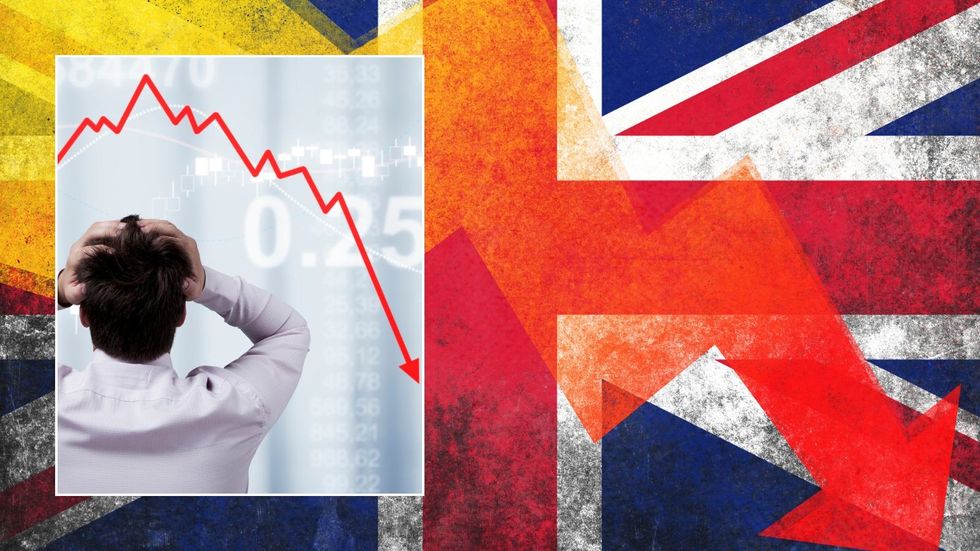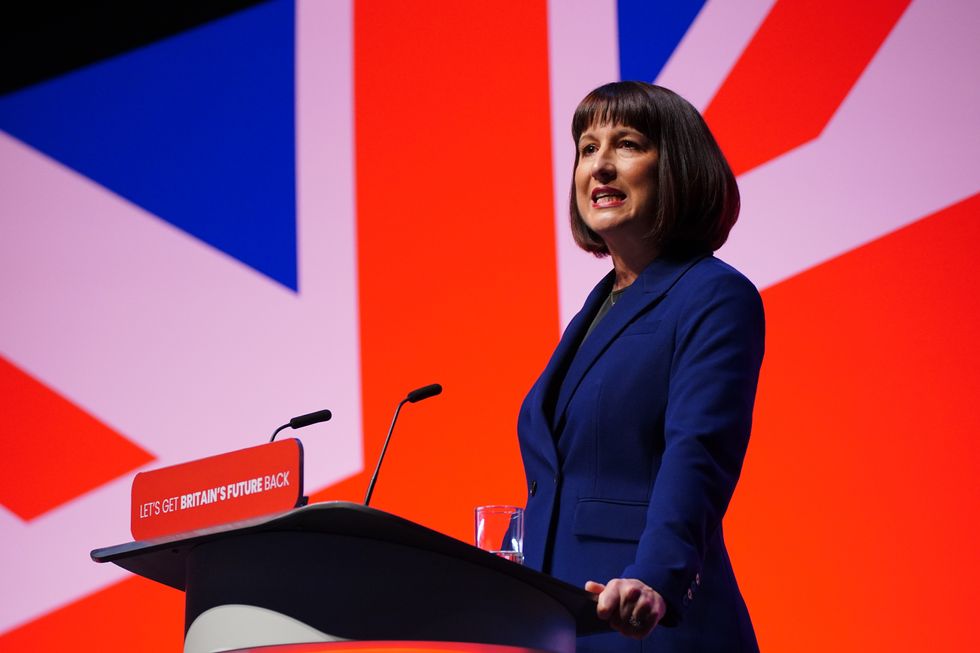UK economy bounces back from recession as GDP rises by 0.6%: 'Still a long way to go!'

The economy is bouncing back from last year's technical recession
|GETTY

The economy fell into a technical recession last year bus now showing signs of recovery
Don't Miss
Most Read
The UK economy has bounced back from last year's shallow recession as gross domestic product (GDP) increased in the second quarter of 2024.
Between April to June, GDP jumped by 0.6 per cent in line with expectations, according to figures from the Office for National Statistics (ONS).
This represents a slight slowdown compared to the first quarter of 2024 but is considered a healthy growth rate compared to 2023's technical recession.
Based on the ONS' report, the services sector was the primary contributor to growth, while the production sector and construction sectors regressed over the period.
Despite this, the economy's GDP had no change in June after 0.4 per cent the month prior.
For June, services output slipped by 0.1 per cent while product output went up by 0.8 per cent.
Do you have a money story you’d like to share? Get in touch by emailing money@gbnews.uk.

The UK fell into a recession towards the end of last year
| GETTYLiz McKeown, the director of economic statistics at the ONS director, broke down what these latest GDP figures mean for the wider UK economy.
She explained: "The UK economy has now grown strongly for two quarters, following the weakness we saw in the second half of last year.
“Growth across the three months was led by the service sector, where scientific research, the IT industry and legal services all did well.
"In June growth was flat with services falling, due to a weak month for health, retailing and wholesaling, offset by widespread growth in manufacturing."
Despite this, economists are warning that it remains early days in the country's recovery from last year's economic downturn.
Professor Joe Nellis, economic adviser to MHA, said: "After a lengthy period of flatlining, the economy has still a long way to go before ‘normality’ is resumed. The new Labour Government has an opportunity to reset expectations with its first Budget since March 2010 and the most significant in a decade on 30 October.
"However, with a legacy of a record high tax burden and government debt close to 100 per cent of GDP, there is no room for a fiscal stimulus to sling-shot the economy on to a stronger and more sustainable growth path.
"Real growth will require private sector investment and quickly which is why the Chancellor needs to tread a careful line in October between raising revenues and deterring would be investors."
On today's figures, Chancellor Rachel Reeves said: "The new Government is under no illusion as to the scale of the challenge we have inherited after more than a decade of low economic growth and a £22billion black hole in the public finances.
"That is why we have made economic growth our national mission and we are taking the tough decisions now to fix the foundations, so we can rebuild Britain and make every part of the country better off."
LATEST DEVELOPMENTS:
 Rachel Reeves | PA
Rachel Reeves | PATowards the end of 2023, the UK was found to have fallen into a "technical recession".
This is defined as happening when a country experiences two consecutive quarters of negative economic growth.
Hailey Low, NISER's associate economist, said: "While short-term growth is reassuring, addressing issues that have hindered long-term economic growth is essential.
"Persistent challenges such as low productivity growth, strained public finances, and inadequate infrastructures have acted as barriers to achieving sustained growth. Tackling these challenges will remain crucial for policymakers during this parliament and beyond."










